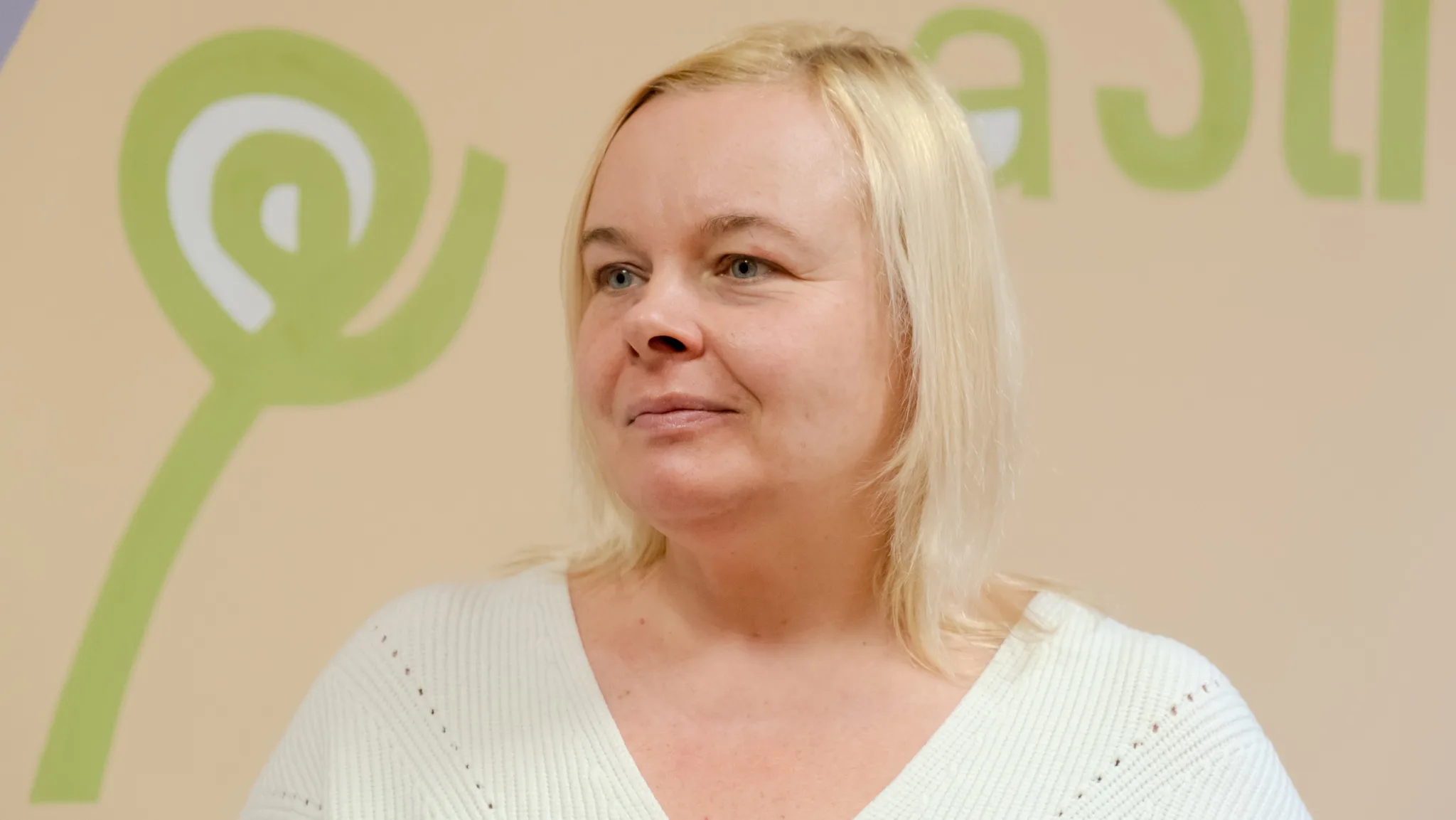Over the 26 years of its work, La Strada Ukraine has grown from a narrowly focused organisation to a powerful voice in society that changes legislation and helps thousands of victims of violence. In an interview with HMH, Kateryna Borozdina, Vice President of the organisation, spoke about her personal professional path, the problem of violence in Ukraine and global challenges.
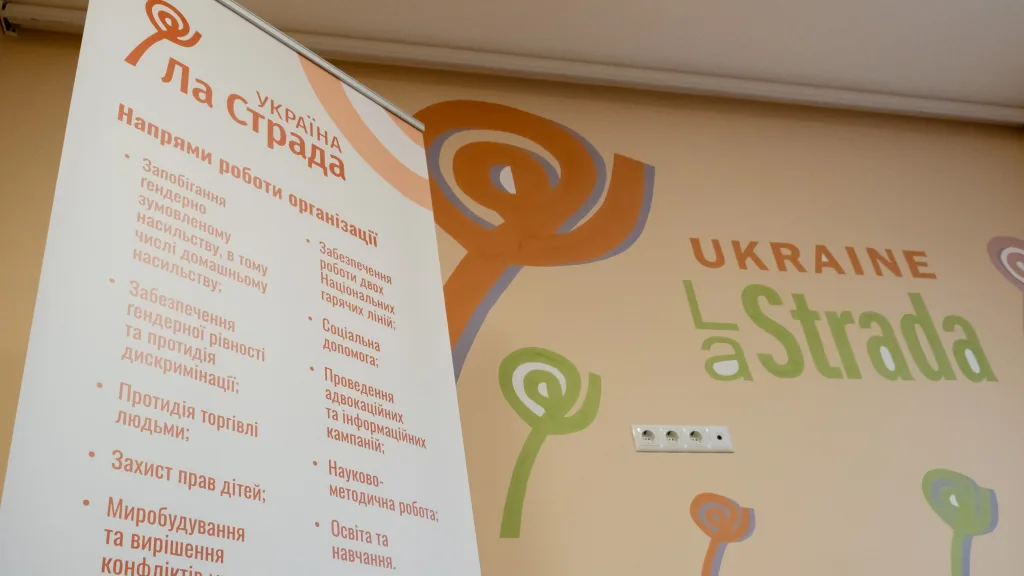
— What was your personal professional path? How did you join the La Strada team?
— My career has been socially orientated from the very beginning. I worked at social service centres in Kyiv, the Ministry of Family, Youth and Sports, and the Ministry of Social Policy. In 2014, I joined La Strada Ukraine. It was my conscious request to work here. At first, I consulted on the national hotline for combating domestic violence, human trafficking, and gender discrimination. Then I became the head of the department. Since 2020, I have been the vice president of the NGO La Strada Ukraine.
Read also: Alarming statistics from November: how the armed conflict affects civilians in Ukraine
Over the past 10 years, this has become my life, because this is really the job I want to do. What motivates me the most is seeing the impact of your work on shaping certain things in society, even on the formation of laws.
— What qualities do you need to have to work in your field?
— You need to have competences. If we are talking about hotlines, it is the ability to communicate on the phone, understand the caller and provide support. Knowledge of the law is a must. Without it, it is difficult to formulate and implement projects. Knowledge of international standards is also important. And, of course, the willingness to work in a team.
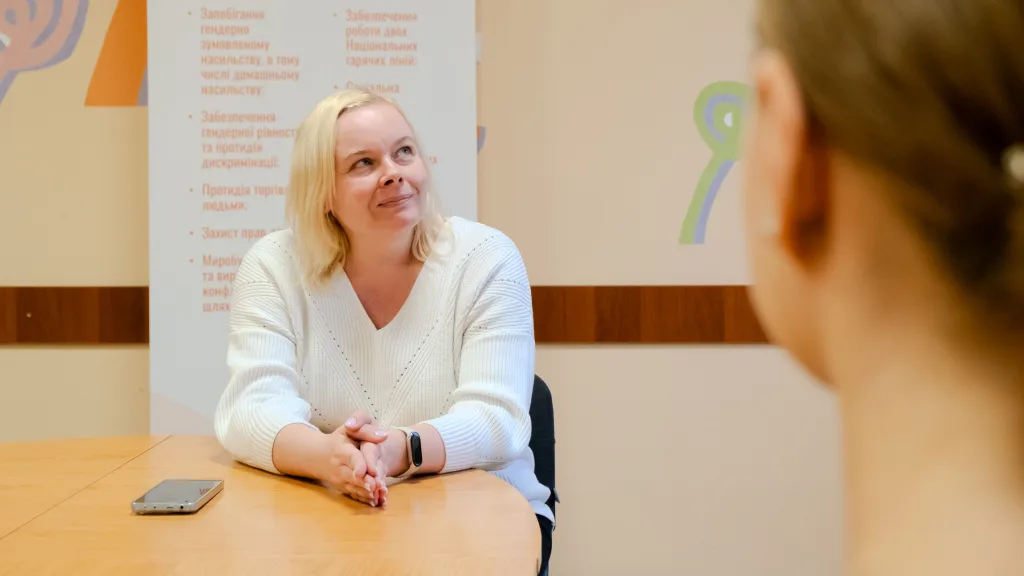
— Tell us about the La Strada organisation, when did it come into being and what was its purpose?
— La Strada Ukraine was founded in 1997 and initially focused only on combating human trafficking. In 1997, there were great risks for Ukrainian women who were looking for work abroad. In particular, because of the active human trafficking at that time. At that time, the National Hotline was the first in Ukraine to receive calls from women who had either already been trafficked or had heard about it and wanted to protect themselves.
We consider the date of birth of La Strada to be 31 March 1998, when it was officially registered with the Ministry of Justice. Later, the hotline began receiving calls from women about domestic violence, and later, calls from children. Gradually, La Strada expanded its activities and transformed the hotline.
Since 2013, we have had two full-fledged hotlines — one for adults and one for children and youth.
Read also: How Ukraine is changing its approach to humanitarian crises: lessons for the world
— How many people are in your team?
— We have 18 people on staff. In addition, there are 21-22 hotline consultants. We also work with volunteers. But, for example, we cannot involve them in the hotline. It should be professional advice, and a volunteer may not have the necessary knowledge. We involve volunteers mainly during street actions. As a rule, these are first-year students — sociologists, psychologists – who want to be socially active. We have several foreign volunteers who help with translations. Sometimes student volunteers stay on to work for us. Even our director of the hotline department once started as a volunteer.
— How can one become your employee, for example?
— Follow the announcements on our social media.
— Can you tell us how the hotline works?
— The hotline works around the clock. The hotline provides legal, psychological and information consultations. In the evening and at night, only psychologists provide consultations on the line, because according to research, 99% of consultations during this period relate to psychological issues.
On average, if we are talking about the National Hotline for Combating Domestic Violence and Human Trafficking and Gender Discrimination, we receive 38-39 thousand calls a year. 92% of them are calls about combating domestic violence. That is, the total majority. And these are mostly women. Men also call. By the way, the number of calls from men began to increase after we switched the hotline to a round-the-clock operation. Men call more often in the evening and at night. But in terms of percentage, it is about 75% women to 25% men.
At the beginning of the full-scale war, the number of calls decreased dramatically. This is not because the violence stopped. It’s just that people were temporarily preoccupied with other problems. They said, ‘I’m not going to call the police, I’ll just wait a little longer. Then the situation gradually stabilised and we reached the same number of calls.
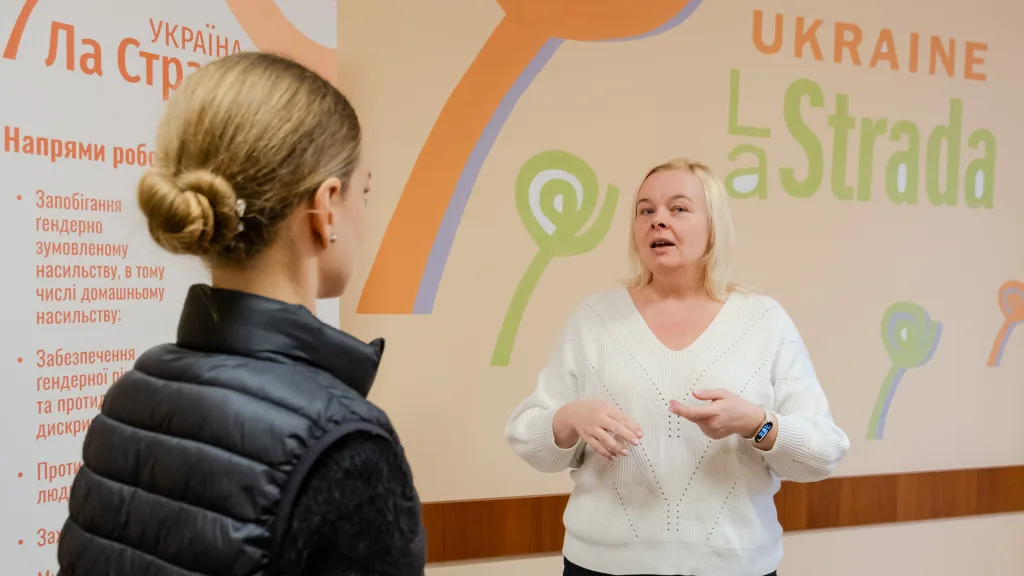
— How else has the war affected the problem of violence?
— The risk groups that can suffer from domestic violence have changed. These are, in particular, IDP families. Especially those who have been displaced several times. Also, a certain number of people’s psycho-emotional state has deteriorated. When there are no skills to understand and calm oneself, to solve problems in the family using non-violent methods. People call this ‘breakdowns’ — ‘I broke down’ or ‘I snapped’. Stress and the general tense atmosphere make it easier for people to ‘break down’. However, this cannot be an excuse for violence.
Read also: Even the most sceptical believed in the idea: How the Alliance of Ukrainian Civil Society Organisations was created
Violence is the sole responsibility of the person who commits it. It is not justified by war, stress or anything else.
As for the military, their experience of combat will undoubtedly affect their psychological state. However, this is no excuse either. Such people should be open to working with psychotherapists and engage in rehabilitation themselves.
I often hear that women cannot dare to contact the police, a hotline, or leave their husbands because they are afraid of public condemnation. For example, a man returned from the war and started beating his wife. Now if she leaves, society will condemn her – how can she, she left the military, and it is so hard for him. This is a new stereotype that is now being formed. What can we do? We can say that violence cannot be justified by anything. Even traumatic military experience.
— Do victims of psychological violence call the hotline?
— Yes, psychological violence is very common. This is almost half of the calls. This type of violence includes systematic insults, shouting, swearing, which contain elements of humiliation, levelling the victim. It can include manipulation, gaslighting, and distortion of facts. Moreover, victims often do not even resist psychological violence. And then they start to believe what the abuser says.
There are cases when a woman lives in this situation for 10 or 20 years. And she leaves it because her emotional system is overwhelmed, or because of the life experience she has gained over the years. There is a widespread belief that you need to live with a man for the sake of your children. And when children reach adulthood, women decide to leave.
— What is the worst thing about psychological violence?
— The worst thing is when you hear from the victims: ‘It would be better if he really beat me than constantly intimidate me with beatings.’ It’s terrible when a woman is so psychologically devalued that she wants physical pain to avoid psychological pain. By the way, psychological violence is the only kind that can exist on its own. Physical violence will always be accompanied by psychological and possibly sexual violence. Sexual violence will always be accompanied by psychological and physical violence. Economic violence will be accompanied by psychological and possibly physical or sexual violence. Psychological violence can be on its own. In this case, the victim seems to have no obvious reason to leave the relationship. However, over time, the psycho-emotional system of such a person is destroyed. They may get sick or commit psychological violence against children to relieve the tension.
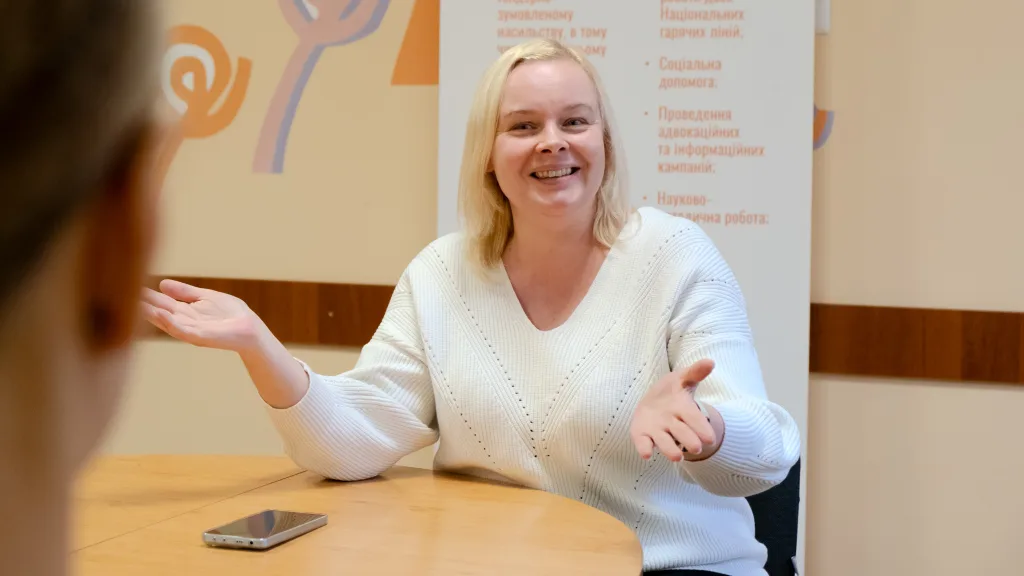
However, despite everything, we have a positive trend. Today, compared to the situation 15 years ago, more and more women are not silent, but are seeking help. The police and doctors who respond to calls are also much more loyal to them.
— What are your sources of funding?
— Grants. There are also charitable contributions, but they make up a small percentage.
— What are your plans for the future?
— To advocate for changes in legislation. It is very important now. We also plan to develop the area of combating human trafficking. Many people are now travelling abroad and may accept risky job offers due to difficult circumstances. We also develop and conduct trainings and work with law enforcement agencies and the police. We also work with the National School of Judges.
We also work with the problem of war-related sexual violence. The victims are not only women but also men. Sometimes, those who suffered at the beginning of the full-scale invasion were able to tell about it only now. To help these people, we have a chatbot in Telegram. If they wish, they can fill out an online form to report a war crime. We send this form to the Office of the Prosecutor General of Ukraine.
— Do you think gender equality is a utopian idea?
— No, it doesn’t. We can gradually come to it. For example, through the development of gender-sensitive legislation. Not neutral, but sensitive, when the needs of both women and men, girls and boys are taken into account, and then opportunities for their implementation are created. I hope we will achieve this in a certain foreseeable time.
Read also: Ukraine implements electronic data exchange between TCC and National Police



